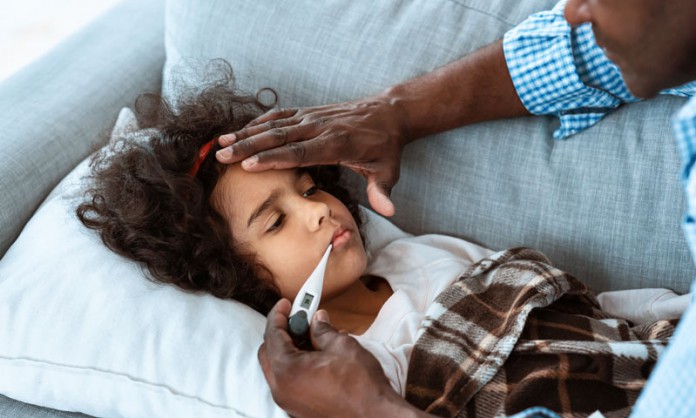Dr. Suruchi GoyalAgarwal, Consultant – Paediatrics and Paediatric Endocrinology, Columbia Asia Hospital Whitefield Multisystem inflammatory.
The Novel Coronavirus disease (COVID-19) Pandemic has been a steep learning curve for doctors, scientists and health care communities worldwide. New information especially with regards to children is surfacing which has led to significant anxiety in parents.
This article aims to address these concerns.
Children so far have fortunately not been very affected by this illness. Internationally Children have comprised 1.7-2% of national cases. Most children have had mild symptoms and many instances have developed no symptoms at all despite testing positive.

Important Announcement – EasyShiksha has now started Online Internship Program “Ab India Sikhega Ghar Se”

Top Courses in Virtual Reality
More Courses With Certification
There has been a lot of recent newspaper articles, case reports and social media reports of a severe Kawasaki like illness in children associated with this pandemic.
What is Kawasaki disease?
Kawasaki disease is a well-known autoimmune self-limiting vasculitis (the cells of your immune system attack your own body especially small and medium sized blood vessels including the vessels supplying the heart). The trigger of this autoimmune phenomenon remains a conundrum since it was first discovered In January 1967 in Tokyo and several theories including an infective trigger to super antigen have been explored. It affects more boys than girls and predominantly affects children under the age of 5 with an annual incidence of 10-100/100,000 children. The incidence of Kawasaki Disease has been increasing over the past decade which is partly attributed to a greater awareness and diagnosis.
There is no specific test to confirm whether the child has Kawasaki’s disease rather it is diagnosed based on a constellation of clinical symptoms, blood tests and scans like the echocardiogram of the heart.
Top Courses in Software Engineering
The main features of Kawasaki disease are
- Fever forat least a period of 5 days
- Erythema(redness) of lips and the mouth cavity or cracks on the lips
- Rash on the body
- Swelling and redness of hands and feet later with peeling of the skin tips of toes and fingers
- Redness of the whites of theeyes(conjunctivitis)
- Swelling of lymph nodes
The aim of treatment of Kawasaki disease is the to reduce the inflammation and eventually protect the heart. Your paediatrician along with input from a paediatric rheumatologist will suggest medication such as immunoglobulins, aspirin and/or steroids which will need to be done in the hospital.
‘Multisystem inflammatory syndrome in children’: Kawasaki like illness in the COVID-19 pandemic
Many countries especially Italy, France, Spain, USA and UK, that have seen a peak of COVID-19 infection have reported a small number of cluster of children presenting very similar to Kawasaki disease in association with a toxic shock syndrome. This is seen nearly 3 weeks after the peak of the infection. The term used to describe it is ‘Multisystem inflammatory disorder of children and adolescents.
The key is the presentation of these children a couple of weeks after the peak of the infection in the general population (generally adults). Tests on these children show that the COVID-19 RT-PCR test may be negative and they may be positive for the antibodies. This enhances our understanding that it is not the acute infection with the virus but hyperinflammatory response of the body that leads to involvement of multiple organs including the heart. Many studies are currently underway to make us understand this new presentation of the COVID-19 that is affecting children.
Important Announcement – EasyShiksha has now started Online Internship Program “Ab India Sikhega Ghar Se” during this lockdown.
Although there are some similarities with the Kawasaki disease that has been discussed above, it is an entirely new entity which requires urgent recognition and treatment.
The small number of children who have been affected are generally between 5-15 years of age and have presented with:
- a fever for at least 3 days
- features resembling Kawasaki disease: rash, redness to the eyes, redness with swelling to the palms and soles or the mouth cavity. In addition to this they may have
- loose stools, vomiting, tummy pain that may be severe,
- low blood pressure
- neck pain
- ability to affect multiple organs including the heart early on.
- Breathing may or may not be affected
Although rare the multisystem inflammatory disorder requires urgent immediate medical attention which will enable your Paediatrician to examine and assess your child at the earliest, conduct the tests needed and commence treatment without delay.
Top Courses in Networking
Empower your team. Lead the industry
Get a subscription to a library of online courses and digital learning tools for your organization with EasyShiksha
Request NowQ. Are EasyShiksha's internships truly free?
Yes, all internships offered by EasyShiksha are completely free of charge.
Q. How can I apply for an internship with EasyShiksha?
You can apply by visiting our website, browsing available internships, and following the application instructions provided.
Q. What types of internships are available through EasyShiksha?
EasyShiksha offers a wide range of internships across technology, business, marketing, healthcare, and more. Opportunities are continuously updated.
Q. Will I receive a certificate upon completing an internship?
Yes, upon successful completion, you will receive a certificate recognizing your participation and achievements.
Q. Are EasyShiksha's internship certificates recognized by universities and employers?
Yes, the certificates are recognized by universities, colleges, and employers worldwide.
Q. Is the download of certificates free or paid?
Access to internships and courses is free, but there is a small fee to download certificates, covering administrative costs.
Q. When can I start the course?
You can choose any course and start immediately without delay.
Q. What are the course and session timings?
These are fully online courses. You can learn at any time and pace. We recommend following a routine, but it depends on your schedule.
Q. What will happen when my course is over?
After completion, you will have lifetime access to the course for future reference.
Q. Can I download the notes and study material?
Yes, you can access and download course materials and have lifetime access for future reference.
Q. What software/tools would be needed for the course?
All necessary software/tools will be shared during the training as needed.
Q. I’m unable to make a payment. What should I do?
Try using a different card or account. If the problem persists, email us at info@easyshiksha.com.
Q. Do I get the certificate in hard copy?
No, only a soft copy is provided, which can be downloaded and printed if required.
Q. The payment got deducted but shows “failed”. What to do?
Technical errors may cause this. The deducted amount will be returned to your account in 7-10 working days.
Q. Payment was successful but dashboard shows ‘Buy Now’?
Sometimes payment reflection is delayed. If it takes longer than 30 minutes, email info@easyshiksha.com with the payment screenshot.
Q. What is the refund policy?
If you face technical issues, you can request a refund. No refunds are issued once the certificate has been generated.
Q. Can I enroll in a single course?
Yes, select the course of interest, fill in the details, make payment, and start learning. You will also earn a certificate.
Q. My questions are not listed above. I need further help.
Contact us at info@easyshiksha.com for further assistance.
Management will generally be hospitalisation. The child after an initial assessment will have a treatment protocol drawn up which will involve medicines that will help dampen this inflammatory response. These will generally comprise use of steroids, immunoglobulins, antibiotics and immune-modulators to name a few. The encouraging news is that children who have presented with the multisystem inflammatory disorder have done extremely well when identified early.
It is important to reiterate here that this is extremely rare. The nature of the Multisystem Inflammatory syndrome in the COVID-19 pandemic will become clearer as we have more data from countries that have experienced a peak before us. The key for now is to be aware and vigilant but not to panic.
For information related to technology, visit HawksCode and EasyShiksha
ALSO READ: iibm-institute-of-business-management-offers-british-online-mba
Get Course: Digital-Marketing-Agency-Elite-Consultants-Masterclass





































































